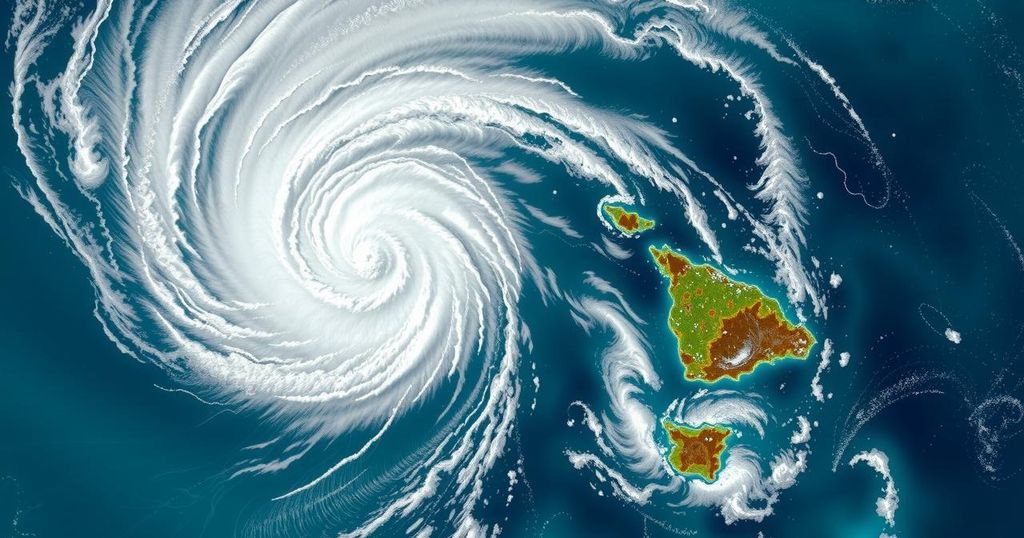Tropical Storm Dikeledi struck Mayotte shortly after Cyclone Chido caused significant devastation, prompting authorities to issue warnings and open shelters. The storm led to severe weather conditions threatening flooding, while recovery efforts from last month’s cyclone continued. The territory remains under a red alert as emergency services mobilize to ensure public safety amid this recurring crisis.
On Sunday, Tropical Storm Dikeledi battered the French territory of Mayotte, compounding the already significant destruction caused by Cyclone Chido just weeks earlier. Residents were urged to remain indoors and stockpile essential supplies as the storm brought strong winds and heavy rainfall, threatening flooding and landslides. Recovery efforts from Cyclone Chido, which had already devastated the islands, were ongoing when Dikeledi struck with renewed ferocity.
Previously, Cyclone Chido, which made landfall on December 14, resulted in 39 confirmed fatalities and left more than 200 individuals missing, in addition to injuring over 5,000 people. Following Dikeledi’s approach, the French meteorological service warned that it could re-strengthen into a cyclone, prompting authorities to issue a red alert for Mayotte. The prefecture communicated the persistent danger through various alerts, emphasizing the responsibility of residents to ensure their safety.
Investing in preparedness, Mayotte opened various cyclone shelters for those who need refuge and closed its already damaged international airport until further notice. In anticipation of Dikeledi, over 4,000 emergency personnel were deployed to assist with potential evacuations, particularly in vulnerable areas affected by Chido. Reports from local media indicated that the village of Mbouini, which had previously weathered Chido relatively unscathed, suffered extensive flooding due to Dikeledi’s impact.
The islands are home to a population of about 320,000 people, compounded with approximately 100,000 undocumented migrants drawn by the European Union’s welfare systems. Despite being a French territory, Mayotte faces economic difficulties, culminating in neglect allegations directed toward the French government. The government is keen to bolster efforts given the devastation from Chido and the potential for increased harm from Dikeledi.
As the cyclone season in the southwestern Indian Ocean progresses, meteorologists reflect on the severe consequences of cyclones in recent years, including Cyclone Idai in 2019, which had catastrophic effects across several nations in the region.
The Mayotte islands, located in the Indian Ocean, have experienced significant climatic challenges, particularly during the cyclone season from November to April. Tropical Storm Dikeledi arrives shortly after the catastrophic impact of Cyclone Chido, which destroyed numerous homes and caused numerous casualties. The region’s vulnerability, characterized by high population density and a large undocumented migrant community, complicates recovery efforts, making timely aid and assistance crucial in instances of natural disasters. The French government has faced criticism for perceived neglect in addressing the needs of this impoverished territory, further intensifying the call for effective disaster management strategies.
In summary, the arrival of Tropical Storm Dikeledi has exacerbated the recovery challenges faced by Mayotte following Cyclone Chido’s devastation. With a high level of preparedness required, the authorities are prioritizing the safety of residents while addressing ongoing reconstruction efforts. The persistent threat of severe weather underscores the critical need for enhanced support and infrastructure in this economically disadvantaged region, particularly during cyclone season.
Original Source: www.wral.com






